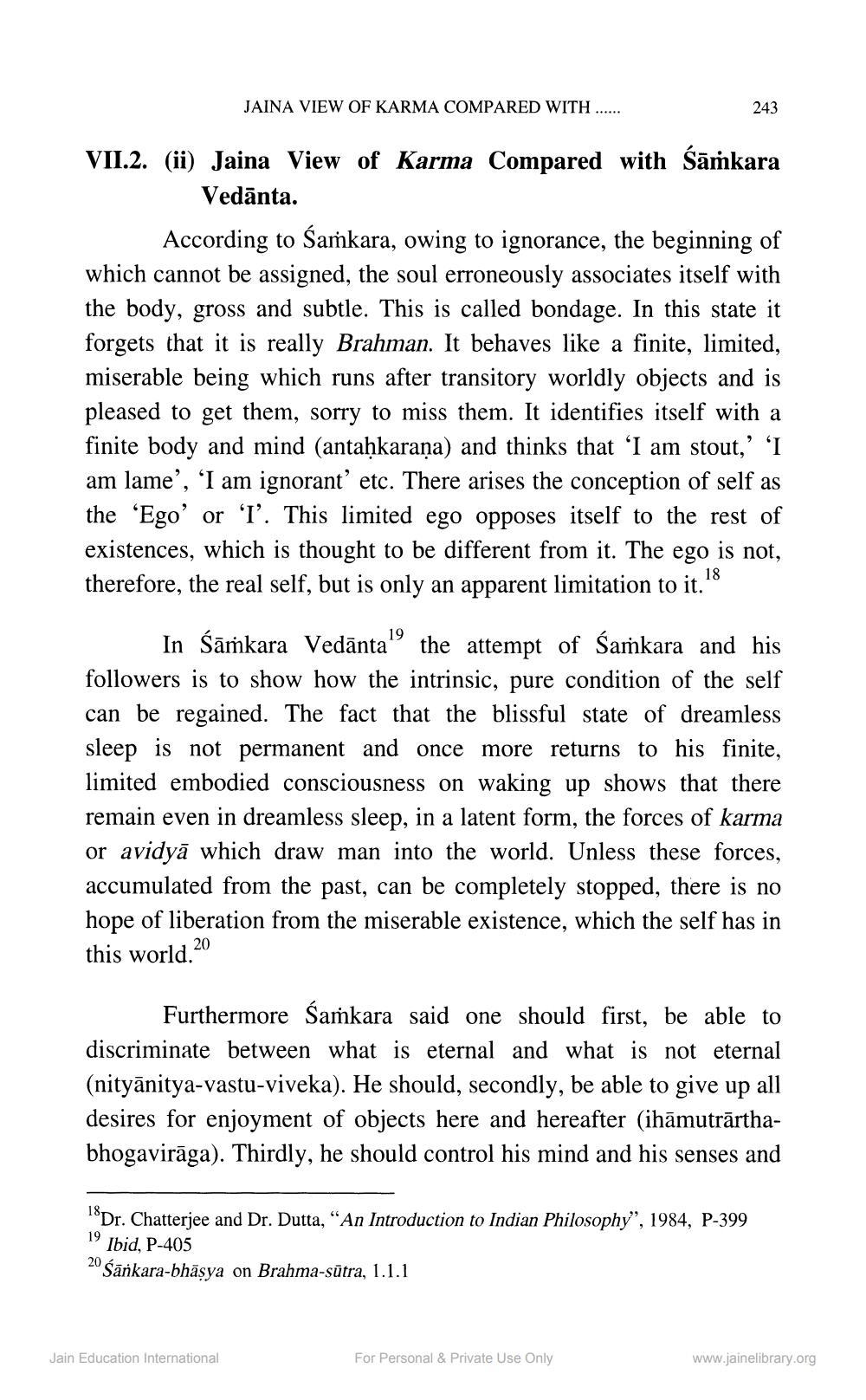________________
JAINA VIEW OF KARMA COMPARED WITH.......
VII.2. (ii) Jaina View of Karma Compared with Samkara
Vedanta.
According to Samkara, owing to ignorance, the beginning of which cannot be assigned, the soul erroneously associates itself with the body, gross and subtle. This is called bondage. In this state it forgets that it is really Brahman. It behaves like a finite, limited, miserable being which runs after transitory worldly objects and is pleased to get them, sorry to miss them. It identifies itself with a finite body and mind (antaḥkaraṇa) and thinks that 'I am stout,' 'I am lame', 'I am ignorant' etc. There arises the conception of self as the 'Ego' or 'I'. This limited ego opposes itself to the rest of existences, which is thought to be different from it. The ego is not, therefore, the real self, but is only an apparent limitation to it.
18
In Śāmkara Vedanta' the attempt of Śamkara and his followers is to show how the intrinsic, pure condition of the self can be regained. The fact that the blissful state of dreamless sleep is not permanent and once more returns to his finite, limited embodied consciousness on waking up shows that there remain even in dreamless sleep, in a latent form, the forces of karma or avidya which draw man into the world. Unless these forces, accumulated from the past, can be completely stopped, there is no hope of liberation from the miserable existence, which the self has in this world."
20
243
19
Jain Education International
Furthermore Śamkara said one should first, be able to discriminate between what is eternal and what is not eternal (nityānitya-vastu-viveka). He should, secondly, be able to give up all desires for enjoyment of objects here and hereafter (ihāmutrārthabhogaviraga). Thirdly, he should control his mind and his senses and
18Dr. Chatterjee and Dr. Dutta, “An Introduction to Indian Philosophy", 1984, P-399
19
Ibid, P-405
20 Sankara-bhāṣya on Brahma-sutra, 1.1.1
For Personal & Private Use Only
www.jainelibrary.org




